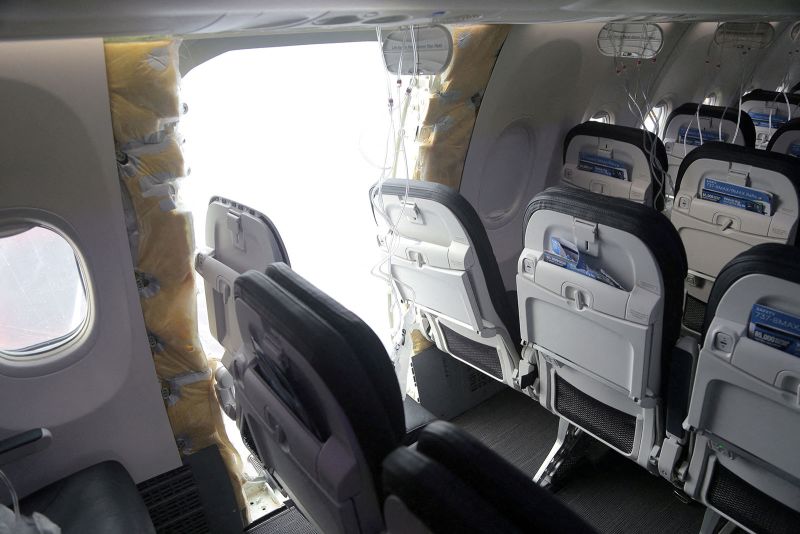
Boeing Safety Culture Critique Reveals Concerning Findings

A critical examination of Boeing's safety culture uncovers gaps and fear of retaliation among employees, raising serious concerns about the company's commitment to safety procedures.
Unveiling Boeing's Safety Culture
In a scathing review of Boeing's safety practices, a panel of industry experts shed light on concerning findings that question the aerospace giant's dedication to ensuring the safety of its aircraft. The report, issued by the Federal Aviation Administration, highlighted significant gaps in Boeing's safety journey, painting a troubling picture of a company grappling with internal conflicts and a culture of fear.
Amidst repeated claims of prioritizing safety, the panel's investigation revealed a disconnect between Boeings' senior management and frontline employees regarding safety culture. This discord, coupled with a reluctance to report safety concerns due to fears of retaliation, has cast a shadow over Boeing's once-vaunted reputation for safety and engineering excellence.
FILE PHOTO: The fuselage plug area of Alaska Airlines Flight 1282 Boeing 737-9 MAX, which was forced to make an emergency landing with a gap in the fuselage, is seen during its investigation by the National Transportation Safety Board (NTSB) in Portland, Oregon, U.S. January 7, 2024. NTSB/Handout via REUTERS./File Photo
Challenges and Recommendations
The panel's in-depth analysis identified several key challenges within Boeing's safety framework. One of the most alarming revelations was the hesitancy among employees to report safety concerns, driven by management conflicts of interest and a lack of clarity surrounding safety programs. This reluctance to speak up, coupled with a pervasive fear of reprisal, has hindered the company's efforts to foster a transparent and accountable safety culture.
Furthermore, the report highlighted discrepancies in employees' understanding of Boeings' Safety Management System (SMS) efforts, signaling a need for clearer communication and training on safety procedures. Despite multiple revisions to the SMS manual, many Boeing employees were found to lack essential knowledge of the system's purpose and protocols, raising concerns about the effectiveness of current safety measures.
The Path Forward
Boeing's response to the panel's assessment emphasized the company's commitment to improving its safety culture and quality programs. Acknowledging the need for ongoing initiatives to empower employees to voice their safety concerns, Boeing's CEO, Dave Calhoun, emphasized the importance of fostering a culture of open communication and accountability.
As Boeing navigates the fallout from the panel's critique, the company faces a critical juncture in redefining its safety practices and rebuilding trust with stakeholders. The recommendations put forth by the panel underscore the imperative of reworking safety procedures to ensure clarity and compliance at all levels of the organization.
This evolving narrative underscores the importance of prioritizing safety and transparency in the aviation industry, urging companies like Boeing to uphold the highest standards of safety and accountability in their operations.














